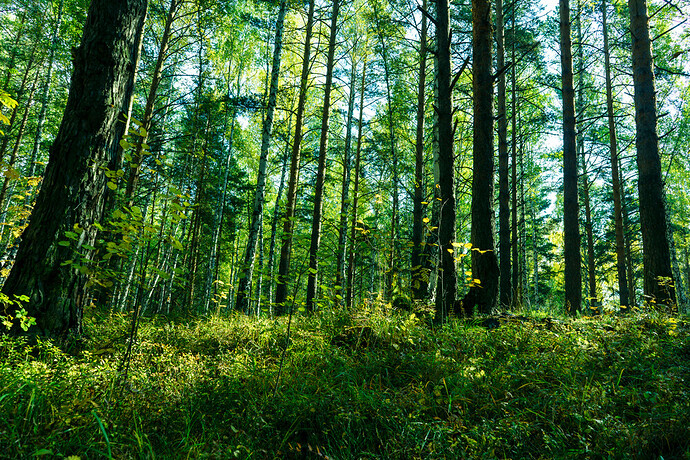The U.S. Department of Agriculture (USDA) has announced a significant investment of $188 million towards the conservation of economically and ecologically significant forestlands across the nation. This funding, part of President Biden’s Investing in America agenda, will support 34 projects aimed at preserving over 245,000 acres of working forests crucial to rural economies in 22 states and one island territory. The Forest Legacy program, administered by the USDA Forest Service, will receive $100 million from President Biden’s Inflation Reduction Act, with an additional $88 million from the Land and Water Conservation Fund.
The selected forests, identified as vital by state, tribal, and non-profit partners, hold immense importance for both the planet’s health and the livelihoods of countless Americans. With increasing pressures to convert forests into other land uses, the Forest Legacy program serves to maintain the functionality of working forests. This investment ensures that these essential forested landscapes continue to provide economic and social benefits to the communities that rely on them.
Agriculture Secretary Tom Vilsack emphasized the significance of this initiative, stating, “These forests are critical to the health of our planet and the livelihoods of millions of Americans. The Forest Legacy program keeps working forests functioning amidst pressures faced by private landowners to convert them. Thanks to President Biden’s Investing in America agenda, we are securing economic and social benefits from our most important forested landscapes for the communities that depend on them.”
The announcement of the fiscal year 2023 Forest Legacy investments was made during an event in Rangeley, Maine. Governor Janet Mills and partners including The Nature Conservancy and Trust for Public Land celebrated the completion of the Quill Hill to Perham project, a Forest Legacy program endeavor spanning nearly 14,000 acres. The project supports wildlife habitat, recreation, and contributes $6 million to the local sustainable timber economy.
Forests, both public and private, within the United States, play a crucial role in providing habitat for wildlife, supporting outdoor recreation, and supplying resources for families. Additionally, they safeguard clean water sources and contribute to forest product economies. These forests are particularly significant to disadvantaged and tribal communities, while also promoting carbon sequestration and climate resilience.
To protect forests at risk of conversion, states will collaborate with tribes and non-profit organizations to implement land easements and purchases of ecologically and economically important forestland.
The Inflation Reduction Act, an integral part of President Biden’s Investing in America agenda, aims to foster economic growth by rebuilding infrastructure, attracting private sector manufacturing investments totaling over $470 billion, creating well-paying jobs, and establishing a clean energy economy to combat the climate crisis and enhance community resilience.
